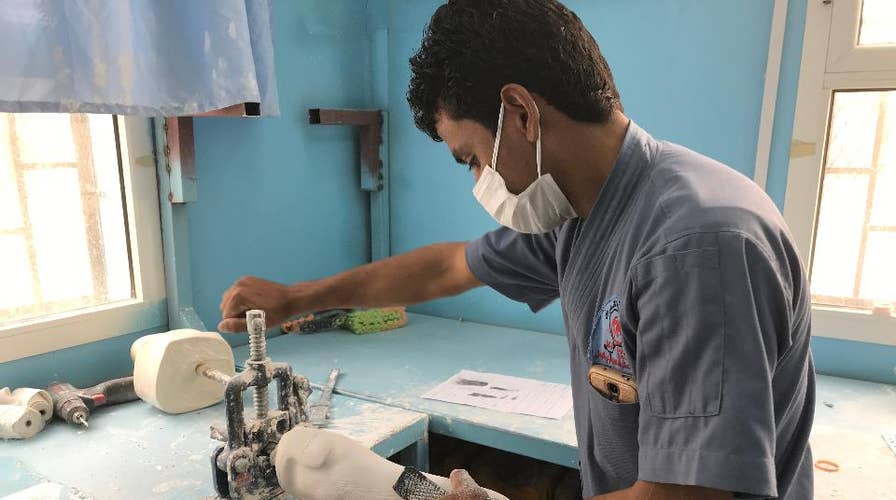Yemen’s civil war and the prosthetic limb industry
A look at how Yemen’s brutal civil war is creating a market for prosthetic limbs.
After more than four years of fighting, many of the dreams and livelihoods of those trapped in Yemen’s capital Sana’a have been dashed and hopes that the bloodletting will end anytime soon, have been laid to waste.
“We’re all depressed, everyone is poor, everyone has lost their jobs,” Nasser, a 58-year-old, Sana’a-based father and former logistics coordinator from a medical company abroad which has had to stop working in Yemen, told Fox News. “Life was going well until the war came, now everything is suspended. The worst thing, is people have now lost their hope.”
But beyond the physical decimation civilians are enduring – upwards of 100,000 people have been killed and 80 percent of the 29 million population are in need of humanitarian assistance nationwide – the psychological toll of the conflict is ravaging entire families.
According to Nasser, their community was devastated by news last month that a father killed his three daughters – aged 7, 10 and 14 – before turning his gun on himself.
“People are really traumatized psychologically. (We think) he became isolated, many fathers think that they are responsible for this bad situation and not being able to take care of their families,” he said. “People don’t want to join the violence groups, but they are feeling there are no more choices. People believe now that every side of the war doesn’t care; nothing will change.”
YEMEN'S CHILD SOLDIERS FACE LONG ROAD AFTER SEXUAL, PHYSICAL ABUSE
This isn’t the only horrific incident. Nasser also revealed that around a year ago, a man killed himself in addition to his three very young sons. Some suspect that it is that sense of hopelessness – married to a fear that the only avenue for male youths is fighting – is having some alarming consequences.
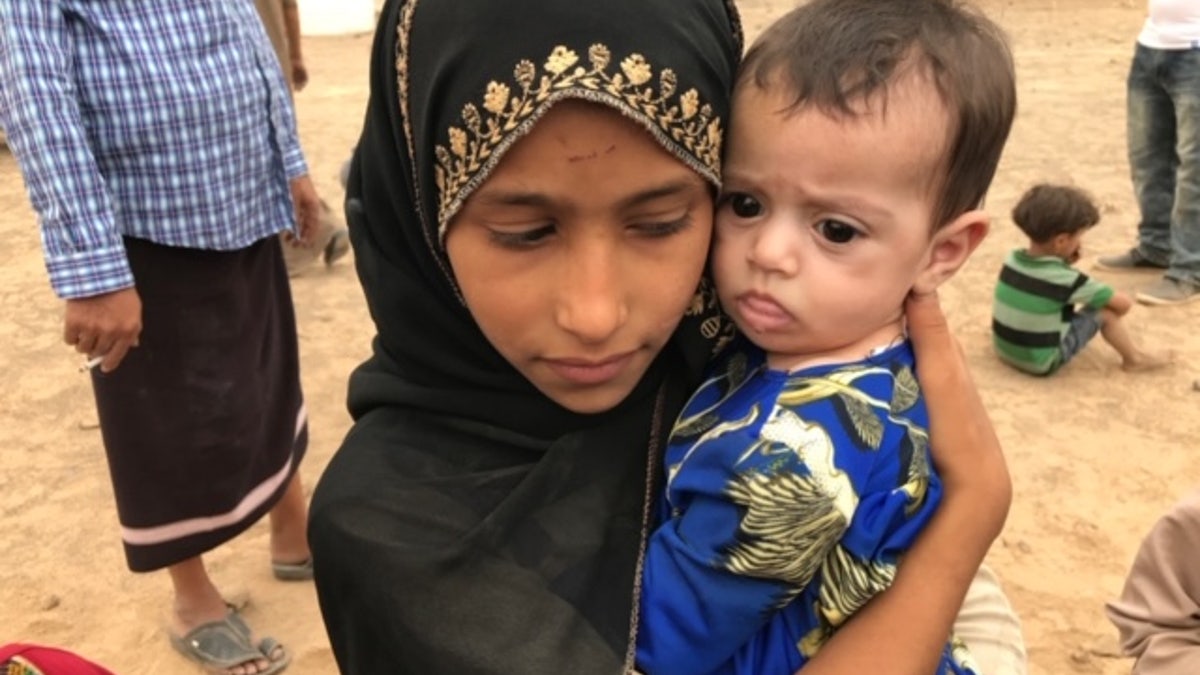
Children displaced from their homes in Sana'a amid the protracted conflict (Fox News/Hollie McKay)
In 2017, a 40-year old woman in Yemen's Ibb province is said to have committed suicide by swallowing a poisonous concoction – after first poisoning her two daughters, aged 9 and 12 – according to The New Arab.
The war in Yemen was sparked in the months after the Iran-backed Houthis took over the capital Sana’a and other pockets of the country in late 2014; prompting neighboring Saudi Arabia and allied countries to form a coalition in an attempt to dislodge the opposition militia. But such a goal has not been met as the conflict drags on.
Despite being deemed the poorest country in the Middle East even before war broke out, young Yemenis sought to enroll in universities or start businesses, the notion of taking up arms back then was something of a far-flung profession.
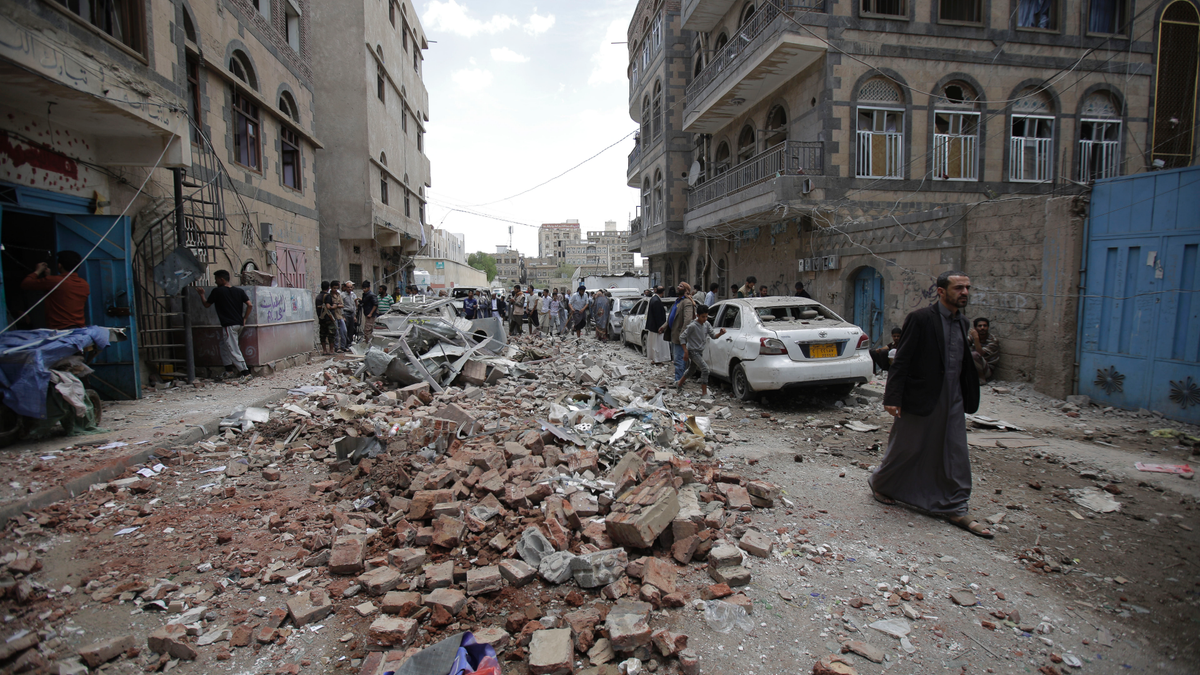
People inspect the site of an airstrike by Saudi-led coalition forces, in Sanaa, Yemen, Thursday, May, 16, 2019. Yemen's human rights minister says heavy fighting is underway in the country's south as rebel Houthis push to gain more territory from government forces and their allies. The clashes come as the Saudi-led coalition carried out airstrikes on the capital, Sanaa, earlier on Thursday, targeting the Houthis and killing at least three civilians. (AP Photo/Hani Mohammed)
Nasser also bemoaned that the once tight trust that existed between neighbors and friends and family members has all but eroded.
“We’ve lost the connections between people, we have lost the trust,” he continued. “People don’t want to leave their homes anymore.”
The summer in Sana’a has also seen a rash of violence between tribal groups aligned with the Houthis. And after the surprise announcement earlier this month from the United Arab Emirates – a close ally in the Saudi-led coalition – that it would be imminently drawing down its ground troops from Yemen, the Saudi-led coalition also announced over the weekend that it had launched a renewed operation to take out air defense positions and ballistic missile depots in the Yemeni capital.
According to one Sana’a local, Hussain Albak, the situation inside the city is “getting worse every day” with prices of food and goods rising and more and more Yemenis have to sleep in the soiled streets and can “only find an income through begging.”
“I have never seen so many Yemenis begging for money. Sana’a has become really crowded,” Albak lamented. “There is no tap water, no government electricity. We have to buy from a private company and the prices are so high.”
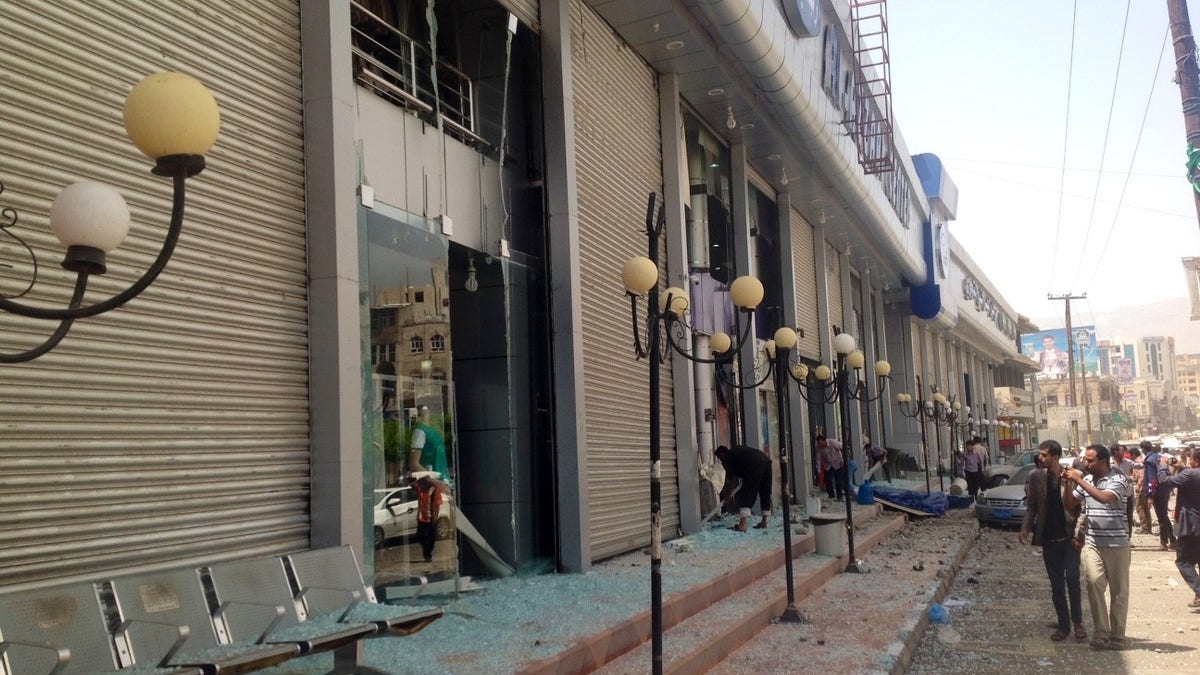
Homeless fill the streets of the Houthi-controlled capital, Sana'a in Yemen (Provided to FoxNews.com)
He noted that while some schools are open, they aren’t like what they used to be given that teacher’s salaries have not been paid in months.
“Hospitals are open, but there is nothing in them. The blockade is preventing medicines from reaching us,” Albak continued, referencing the sea, land and air campaign ignited by the coalition. “And when it does, it is so expensive that it is impossible for poor people to get them at a public hospital.”
Nasser, who has two sons aged five and eight, can only afford to send his oldest to school and even that is poor quality and mostly centered on “religious lessons and indoctrination.”
Earlier this month, a Houthi-operated Specialized Criminal Court (SCC) sentenced 30 political opposition victims – known academics and political figures – to death, in what Amnesty International characterizes as a “flawed legal process” and “trumped-up charges.”
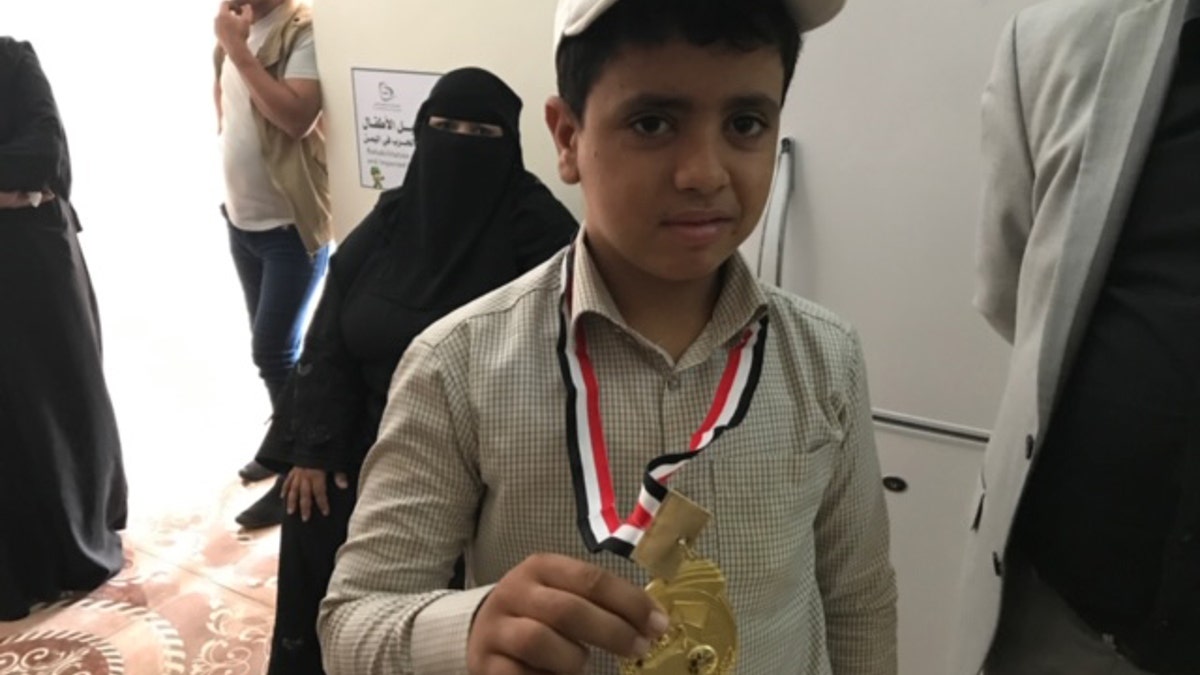
A young boy seeking help in the government-controlled Ma'rib having escaped Sana'a (Fox News/Hollie McKay)
Amnesty accused the SCC of unlawfully rounding up “persons they deem to be opponents or even just critics,” and has “documented the increased use of the SCC in targeting religious minorities.”
“Houthi forces have arbitrarily arrested and detained critics and opponents as well as journalists, human rights defenders and members of the Baha’i community, subjecting scores to unfair trials, incommunicado detention and enforced disappearance,” Amnesty stated, also accusing the internationally-recognized Yemeni government has threatened and arbitrarily detained activists.
AFGHAN WOMEN FEAR RENEWED CHAPTER OF SHARIA LAW AND REGRESSION OF RIGHTS UNDER TALIBAN’S THUMB
With hostilities raging, crucial land routes in recent months have been shuttered – making it extremely dangerous and difficult for aid groups to access vulnerable civilians in the region, according to UNICEF relief reports. Moreover, the United Nations was forced to make it clear in June that it would not allow the Houthis to divert humanitarian aid to their supporters; rather than those civilians who are most in need, thus halting much of the assistance program to Sana’a.
“Yemen’s health care infrastructure, particularly in front line areas, has been decimated by shortages, attacks on hospitals,” said Defense Priorities Director Benjamin H. Friedman. “The biggest concerns are disease, infant mortality, malnourishment, and poverty.”
In his view, both parties to the conflict are to blame for the ongoing mayhem although the coalition is behind many more deaths and destruction.
“I do not foresee any changes in government for Sana’a soon. It does not appear that the Houthis are close to losing control of it,” Friedman asserted. “What is more likely is a stabilization of their rule, and perhaps a power-sharing deal with Yemeni rivals.”
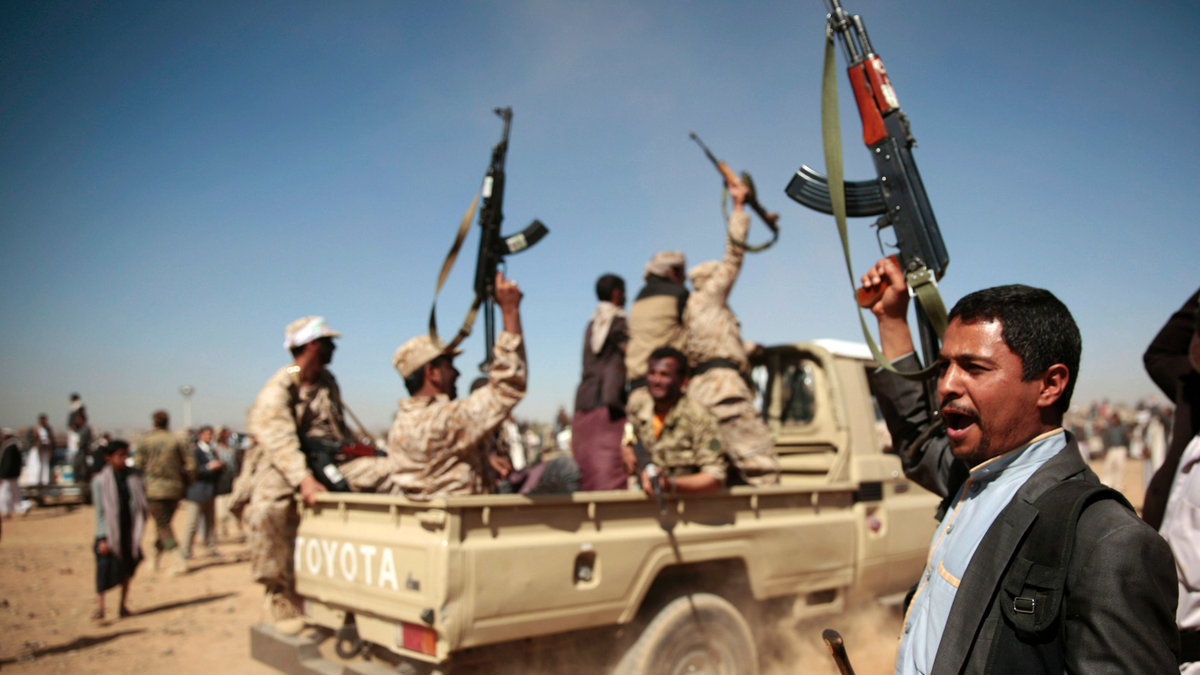
In this Jan. 3, 2017 file photo, tribesmen loyal to Houthi rebels chant slogans during a gathering aimed at mobilizing more fighters into battlefronts to fight pro-government forces, in Sanaa, Yemen. (AP Photo/Hani Mohammed, File)
One former White House National Security Council official, who spoke on the condition of anonymity, told Fox News that initially there was some public tolerance for the Houthis among the population because they were seen as “fighting back against foreign aggressors,” but poor governance has led to a widespread dissatisfaction with “how poorly the Houthis are governing in Sana’a.”
“Government offices now have Houthi representatives making decisions that they just don’t have the expertise or knowledge to make competently. Houthi mismanagement and poor governance are making the already outrageous humanitarian situation worse,” the source said. “But mostly, Yemenis living under Houthi rule don’t rise up against it because they are unclear of the alternative.”
Indeed, many look to security-wracked other parts of the nation and draw conclusions it could always be worse.
For one, Albak surmised that the prices of most basic things have tripled throughout the course of the protracted conflict, and despite the steep challenges of life amid war, acknowledged that “Houthi control was good so far” and a better alternative to being controlled by a terrorist outfit such as Al Qaeda in the Arabian Peninsula (AQAP) which operates in the south of Yemen.
“I don’t know how we are all surviving. But we are,” Nasser added. “We hope there will be a peace agreement and an end to this, but the leaders need to remember that can be no peace without justice.”
